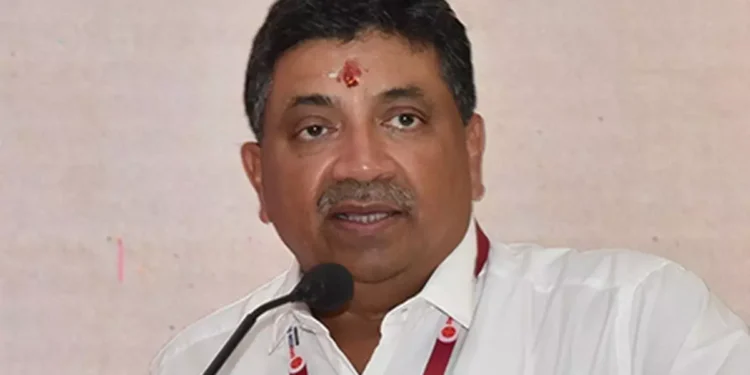The Indian Institutes of Technology (IITs) have long been considered as the premier institutions for technical education in India. With their rigorous academic curriculum and highly qualified faculty, these institutes have produced some of the most successful engineers and scientists in the country. However, in recent years, there has been a growing concern about the politicization and fanaticism within the IITs. In a recent interview, Thiagarajan, a renowned educationist, expressed his views on this issue, stating that the IITs have become “politicized and kind of fanaticized.” Let us delve deeper into this statement and understand the current state of the IITs.
Firstly, it is important to understand what Thiagarajan means by “politicization” and “fanaticism” within the IITs. By politicization, he refers to the increasing involvement of political parties and their ideologies in the functioning of these institutes. This has led to a shift in focus from academic excellence to political agendas. On the other hand, fanaticism refers to the blind and extreme devotion to a particular ideology or belief, which can be detrimental to the overall growth and development of the students.
One of the major reasons for the politicization of the IITs is the increasing interference of the government in the administration of these institutes. The government’s control over the appointment of directors and board members has led to a lack of autonomy and independence in decision-making. This has also resulted in the dilution of the merit-based selection process, with political affiliations playing a significant role in the recruitment of faculty and staff.
Moreover, the increasing influence of political parties has also led to the formation of student groups based on their ideologies. These groups often engage in aggressive and violent activities, disrupting the academic environment of the institutes. This not only affects the students’ learning but also creates a sense of fear and insecurity among them.
The politicization of the IITs has also resulted in a shift in focus from research and innovation to meeting the demands of the industry. This has led to a decline in the quality of education and research, as the institutes are more focused on producing graduates who can meet the industry’s requirements rather than nurturing critical thinking and problem-solving skills.
The issue of fanaticism within the IITs is also a cause for concern. With the increasing influence of political ideologies, students are often swayed by extreme beliefs and ideologies, leading to a narrow-minded approach towards various issues. This not only hinders their personal growth but also affects their ability to contribute positively to society.
However, it is not all doom and gloom for the IITs. Despite the challenges, these institutes continue to produce some of the best engineers and scientists in the country. The students’ determination and hard work, along with the dedicated faculty, have helped maintain the IITs’ reputation as premier institutions for technical education.
To address the issue of politicization and fanaticism within the IITs, there is a need for a collaborative effort from all stakeholders. The government must ensure the autonomy and independence of these institutes and refrain from interfering in their functioning. The selection process for faculty and staff should be based on merit, and political affiliations should not be a deciding factor.
Moreover, the student community must also take responsibility for maintaining a healthy and inclusive environment within the institutes. They must refrain from engaging in any form of violence and focus on their academic and personal growth. The faculty also plays a crucial role in shaping the students’ minds and must encourage critical thinking and open-mindedness.
In conclusion, while Thiagarajan’s statement about the politicization and fanaticism within the IITs may hold some truth, it is essential to acknowledge the institutes’ overall contribution to the country’s development. The IITs have produced some of the most successful and innovative minds, and it is crucial to address the issues at hand to ensure their continued success. With the collective effort of all stakeholders, we can hope to see the IITs regain their position as the epitome of academic excellence and innovation.










